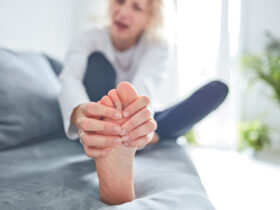 Parkinson’s Disease not only robs the body of mobility, but it also robs the mind of memory. Many Parkinson’s patients can live on their own in the early stages with the support of a family member. However, there will come a time when you feel your loved one needs more care than what can be provided at home. No one wants to out their loved one in a “facility”, but there are different levels of scaffolded support that can help the PD patient and care giver have a better quality of life. In-Home Care, Independent Living, Assisted Living and Memory Care are each a layer of support that may be in the future for your PD patient. Ask yourself the following questions and discuss them with the PD patients support system. No one should face Parkinson’s alone and no one should care for a Parkinson’s patient alone.
Parkinson’s Disease not only robs the body of mobility, but it also robs the mind of memory. Many Parkinson’s patients can live on their own in the early stages with the support of a family member. However, there will come a time when you feel your loved one needs more care than what can be provided at home. No one wants to out their loved one in a “facility”, but there are different levels of scaffolded support that can help the PD patient and care giver have a better quality of life. In-Home Care, Independent Living, Assisted Living and Memory Care are each a layer of support that may be in the future for your PD patient. Ask yourself the following questions and discuss them with the PD patients support system. No one should face Parkinson’s alone and no one should care for a Parkinson’s patient alone.
Some considerations that may lead you to need assistance or consider a higher level of care than a spouse or family member can provide are…
Is the PD patient safe in their current home? Are falls becoming frequent? Are there steps inside or outside the home that are getting more difficult to navigate? Removing extra furniture and rugs are easy. Changing to a hospital bed or lift recliner are small changes. Adding handrails to bathrooms and porches can be hired done. But after those items are complete, and the mobility declines beyond those helps, it may be time to look at a change of environment to protect the safety of the PD patient.
Is the health of the PD patient or the caregiver at risk? Is the family caregiver sacrificing their own health while taking care of the PD loved one? Is the PD patient AND the caregiver getting to their appointments? Even superheroes need help. Hiring some in home help even one day a week so the care giver can take care of themselves is important from the beginning stages of Parkinson’s.
Are the physical needs of the PD patient more than the family member can provide? Picking someone up from a fall, helping them toilet, getting them in and out of bed, showering and dressing are very physically demanding for the caregiver. Spouses want to take care of each other as they age, but is that physically safe for both?
If the family caregiver is the spouse, are they becoming stressed, irritable, or impatient with providing full time care for a Parkinson’s affected loved one? Caring for an ailing spouse full time is not only physically demanding, but it can also take a toll on your mental health as well. Caring for an ailing spouse is as lonely and frightening for the care giver as it is for the PD patient. If the spouse has reached the point where they are not able to leave the PD patient at home alone for even short amounts of time, it is time to investigate the next level of care.
If the family care provider is the child of the PD patient, are they neglecting work responsibilities, their own children and spouse, themselves, or their own mental health to provide more and more care? A “middle care-giver”, a person who is caring for both their parents and their children, is one of the hardest stages of life. Asking for help with caring for a PD patient is no different than asking for help with childcare for a young person. There is no shame in taking a break from being a parent, there is also no shame in taking a break from your parent. Being the middle care giver is double duty. Give yourself double grace.
Would the structure and social interaction of a care facility, even during the day care, benefit the PD patient? Degenerative diseases are so mentally isolating. PD patients are often embarrassed at their tremors, loss of independence and loss of mobility or bodily functions. Social interaction is an important drug.
When it’s time to increase the level of care needed for the Parkinson’s patient or their primary caregiver, reach out to Ultimate Resource Health Care Navigators at 239-994-8116 to see what options are available in your area.









